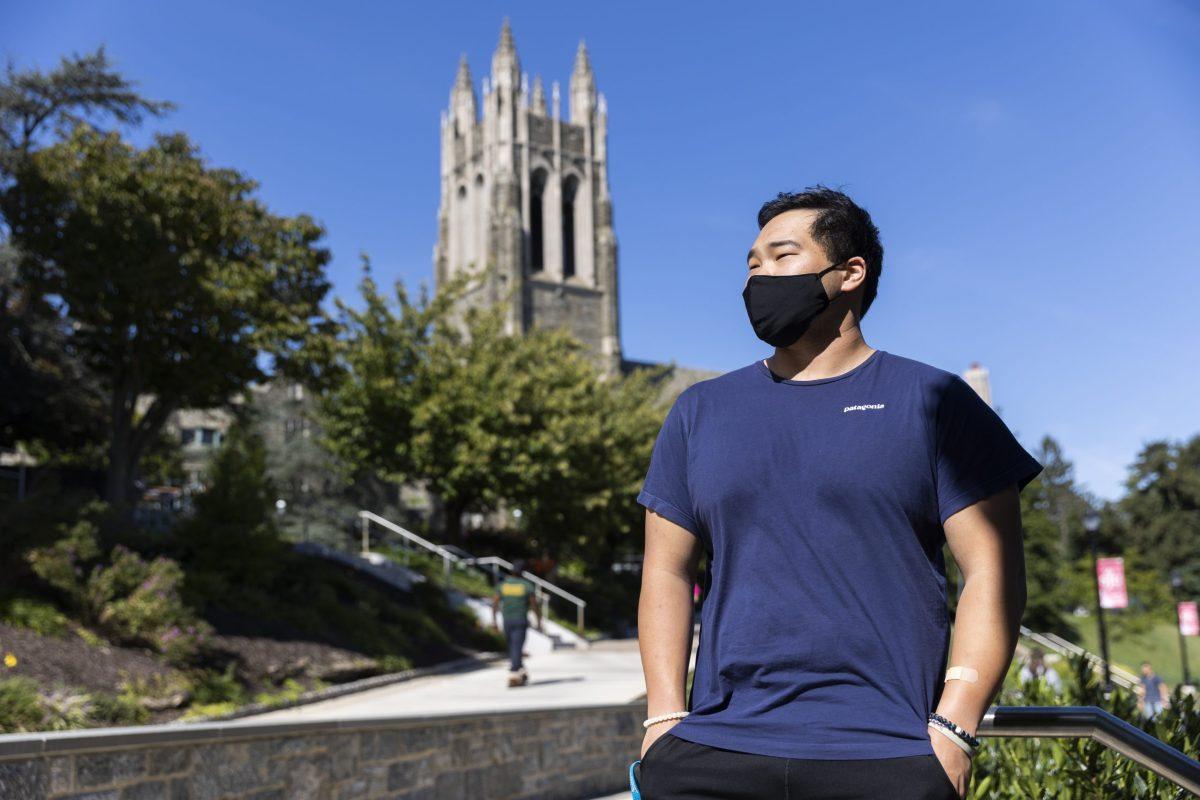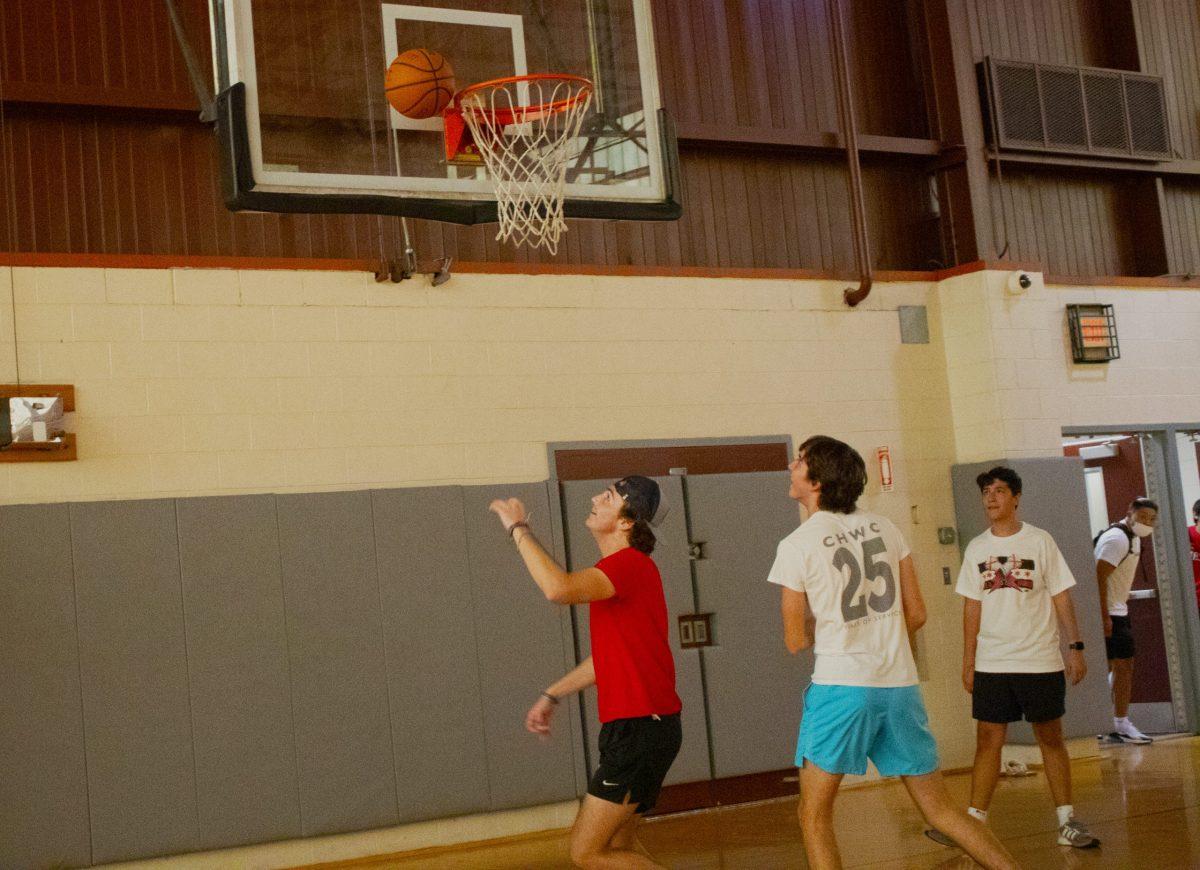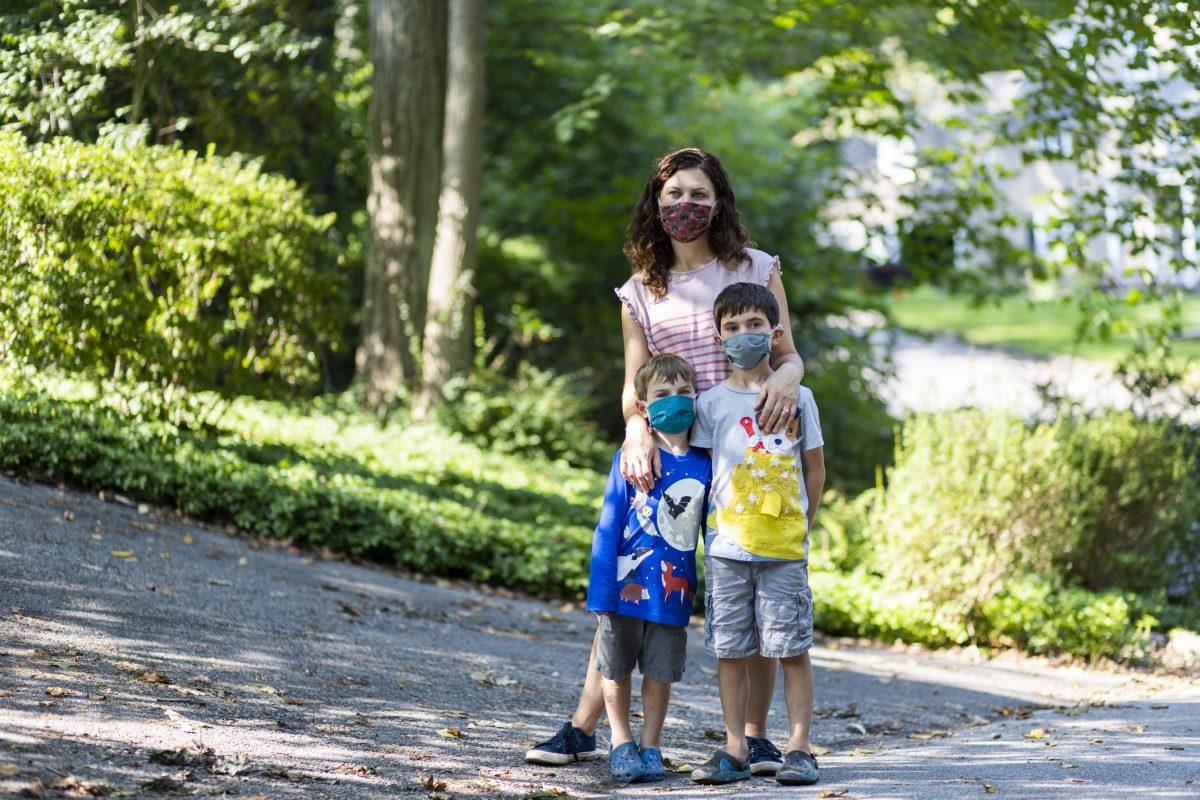When Jenny Simrell ’25 tested positive for covid-19 on Sept. 5, she wasn’t sure what the protocols were for St. Joe’s community members who contract the virus.
After her positive test, Simrell tried to fill out the St. Joe’s Covid Self-Disclosure Form, as university members had been directed to do in previous semesters. However, she was unsuccessful in reporting her illness as a link to the form on the university’s website led to a page that no longer exists.
“I’ve had it in the past, so I knew that’s what I was supposed to do,” Simrell said. “But it wasn’t a thing anymore…Technically, I didn’t contact the school, but I did tell my professors that I couldn’t come to class because of it.”
Despite a wave of late-summer covid infections, the university community did not receive an email at the start of the fall semester regarding covid protocols as it has in the past.
Eileen Bevilacqua, RN, director of the Student Health Center, said St. Joe’s students should follow guidelines on the Center for Disease Control (CDC) website.
People who test positive may leave isolation after five days if they originally had no symptoms or if their symptoms are improving and have been fever-free for 24 hours, according to the CDC. But if symptoms continue after day five, they should continue to isolate until they are fever-free for 24 hours or until their symptoms improve. Additionally, CDC guidelines say those who experience shortness of breath or difficulty breathing from covid should isolate 10 days from when their symptoms began.
Bevilacqua said students who test positive are encouraged to go home, if possible, or isolate in their rooms for at least five days from symptom onset or positive test, if asymptomatic. For students isolating in the same room as their healthy roommate, both roommates should wear a high-quality mask when in the room together. Roommates should also use ventilating fans and air purifiers to increase air circulation in their rooms.
According to the CDC’s covid tracker, there have been 187 new hospital admissions of confirmed covid cases in both the Philadelphia and Montgomery counties since Sept. 12.
Those numbers don’t concern Jim Kyle, news media coordinator for the Philadelphia Department of Public Health, though.
“Even though there is an uptick, we’re not extremely concerned because the numbers, even the hospitalization numbers, are nowhere near what they were a couple of years ago,” Kyle said.
However, Kyle also mentioned that the city cannot publish numbers the way they had in the midst of the pandemic since more people are testing at home.
“They’re testing themselves and not really telling anyone, they’re hopefully quarantining, but they’re not reporting it to anyone,” Kyle said. “So any number we would compile and put out wouldn’t be remotely accurate.”
Current protocols and precautions, Kyle said, work on a “person-by-person basis.”
“Some people are at high risk, some aren’t,” Kyle said. “If you are, and you’re going into a closed space, you should wear a mask just to be safe. If you feel unwell, if you have a cough or classic symptoms of covid, stay home. Don’t go out. Even if it’s not covid, there’s flu, there’s other things and you don’t want to spread them.”
David A. Pegues, M.D., professor of medicine and the Medical Director of Healthcare Epidemiology, Infection Prevention and Control at the Hospital of the University of Pennsylvania, said the severity of illness for those who get covid now is far less than it was in 2020 and 2021.
That was Simrell’s experience.
“Honestly, I had [covid] twice before and this was not nearly as bad as either of those times,” Simrell said. “I don’t know if it’s because I’ve had it before, but it was basically just like a cold.”
But Pegues warned against people getting too comfortable about covid.
“It still can be very impactful if your immune system is weakened because of a disease or a transplant,” Pegues said. “Immunocompromised patients have never had a chance to let their guard down. Those of us whose immune systems work well, who are immuno-competent, have, with a lot of relief, let our guards down. My recommendation would be not to let your guard down too far.”
The CDC announced a covid booster on Sept. 12, recommending it for everyone 6 months and older, especially those with risk factors.
Both Kyle and Pegues encouraged people to think about getting a covid vaccine this fall, just like they may receive an annual flu shot.
“Getting a covid shot in the fall, the same time you get a flu shot, may be the new reality moving forward,” Pegues said. “You can receive both vaccines at the same time. But the recommendation is that you receive them in different sites, in other words, in different arms.”
The university will host a flu and covid vaccine clinic on Oct. 20 and 27 from 9 a.m.-1:30 p.m. on both campuses. On the University City campus, the clinic will be held in the Atrium and Plaza. On Hawk Hill campus, it will be held in the North Lounge.














































